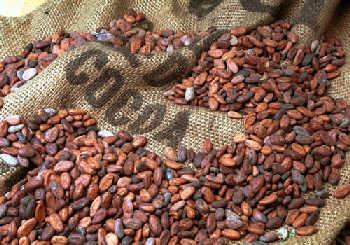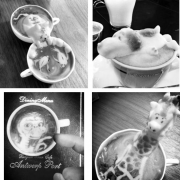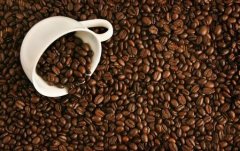Medical interpretation of staying up late for drinking Coffee

In recent years, researchers from all over the world have done a lot of in-depth research on coffee and found that caffeine is not a xanthine alkaloid promoted by people to change their nose and smell the wind. This substance has a certain health care effect on our human body. We have seen the achievements of the scientific research community, but there are articles about the medical evaluation of caffeine has not been carefully analyzed. Today, the editor wants to reprint an academic view of caffeine from Yu Cuifang, a diet therapist at the Kidney Foundation in Singapore.
In an interview, Yu Cuifang pointed out that caffeine is a substance that stimulates the central nervous system. Moderate doses of caffeine can indeed refresh or excite mood, make people think clearly and quickly, eliminate tiredness and drive sleepy worms away.
The refreshing effect of caffeine is not sustainable.
But she cautioned that the refreshing effect of caffeine will not last with a refill, and that attention and learning ability will decrease with physical exertion. Yu Cuifang says that although caffeine is refreshing, it relatively consumes B vitamins related to nerve and muscle coordination in the body. people who lack this group of vitamins are more likely to get tired and are more likely to form a vicious circle and form the habit of drinking tea and coffee. As a result, the demand is increasing, but the effect is getting worse and worse.
Yu Cuifang said that whether drinking coffee is good or not mainly depends on the amount of coffee consumed. As long as we don't eat too much, caffeine is good for our bodies. She recommends limiting caffeine intake to 300 milligrams a day, which is equivalent to about two to three cups of coffee. In other words, as long as your caffeine intake doesn't exceed the limit for a day, it doesn't hurt to stay up late to drink some coffee, otherwise it's free, and it's best to add low-fat calcium milk and reduce sugar in the coffee to improve the nutritional value of the coffee.
Caffeine has no nutritional value in itself, and it has both advantages and disadvantages to health. After drinking caffeine, when the sympathetic nerve is stimulated and excited, it will inhibit appetite, so drinking coffee before a meal will make people less want to eat. Caffeine can stimulate the increase of gastric juice secretion, and drinking coffee on an empty stomach is also disadvantageous to patients with gastric ulcers, so drinking it after meals will be helpful to digestion.
Caffeine may have a slight effect on weight loss or preventing weight gain. Yu Cuifang believes that this is because caffeine suppresses appetite and stimulates metabolism. But there is no strong evidence that increasing caffeine intake can lead to significant or lasting weight loss.
Yu Cuifang asks everyone to keep in mind that when consuming a large amount of caffeine, the body will accelerate its calorie consumption, and its blood sugar will become hungry as it lowers. If self-restraint is not strong, it may lead to eating more food or high-calorie snacks. And some caffeinated drinks, such as lattes or mochas, are high in calories and fat, and drinking too much may lead to weight gain.
Caffeine inhibits phosphoproteolytic enzymes, relaxes vascular smooth muscle, dilates blood vessels, and stimulates sensitive cells to release histamine (Histamine), which is comforting. Some people drink coffee to relieve headaches, but drinking too much coffee in a short period of time can be counterproductive and headaches will be more severe.
In addition, after drinking coffee, caffeine enters the blood vessels through the stomach and small intestine and takes effect after 15 minutes, and the concentration of caffeine in the blood reaches its peak after 40 to 50 minutes. In general, the effect of caffeine can last for 3 to 4 hours, and some for 8 to 12 hours, depending on the rate at which individuals remove caffeine. So if it's not for staying up late, avoid drinks with high caffeine after 2 p.m., or 4 hours before bed.
Caffeine is not limited to coffee drinks. Tea, energy drinks, cola (unless it is marked without caffeine), cocoa, chocolate, chocolate cake, candy, snacks and so on all contain different amounts of caffeine. For example, a cup of coffee contains 100 milligrams of caffeine, and its caffeine content is also affected by the variety of coffee beans, baking method, brewing time and other factors; the caffeine content of a cup of tea generally ranges from 14 milligrams to 60 milligrams.
As caffeine increases the loss of calcium and vitamin B group, after consuming a large amount of caffeine, be sure to pay attention to the supplement of calcium and vitamin B group, eat two servings of vegetables and two servings of fruit a day, and maintain a healthy and balanced diet, so as not to affect your health.
In addition, staying up late usually makes you hungry. Yu Cuifang says that staying up late should eat a small amount of starch and eat only five percent full. Because excessive starch will increase the burden on the digestive system, make people feel drowsy and more sleepy, and the right amount of starch has a refreshing effect, so you might as well use a small amount of starch with proteins such as soy milk and milk, which can not only satisfy hunger but also replenish vitality.
Water is the substance that the human body needs most. People who often stay up late must form the habit of drinking more water. It is advisable to drink 8 cups a day. Thirst is a sign that the body is short of water, indicating that the cells in the body are dehydrated. If you ignore it, enduring it will affect your health. Yu Cuifang advises you to stay up late to replenish water in time and avoid replacing water with sugary drinks, wine or fruit juices, because the calories of these drinks will increase our calorie intake throughout the day.
Important Notice :
前街咖啡 FrontStreet Coffee has moved to new addredd:
FrontStreet Coffee Address: 315,Donghua East Road,GuangZhou
Tel:020 38364473
- Prev

Japanese baristas paint on lattes
There is no doubt that the most interesting thing in modern coffee culture is the coffee flower. The chic graphics or avatars do make people more curious and interesting about coffee. In addition to the taste of coffee, mass consumers are also concerned about the flower-drawing technology of cafes. Although Japanese Yamamoto Ichigi is only 26 years old, his skill of brewing latte beans at the 10g Cafe in Osaka has made him mutual.
- Next

Baristas are made in this way. it's not easy to be a good barista.
It is not easy to be a good barista. Technology is the most basic skill of baristas, and coffee quality should come first. Deng Xuran honed himself like a devil for this. In the first class, the teacher told her that she could no longer eat heavy food such as greasy, sour and spicy food, and that she immediately quit to keep the taste buds clear. Is there any time to put up with it and want to break the precepts? Unexpectedly, Deng Xuran
Related
- Beginners will see the "Coffee pull flower" guide!
- What is the difference between ice blog purified milk and ordinary milk coffee?
- Why is the Philippines the largest producer of crops in Liberia?
- For coffee extraction, should the fine powder be retained?
- How does extracted espresso fill pressed powder? How much strength does it take to press the powder?
- How to make jasmine cold extract coffee? Is the jasmine + latte good?
- Will this little toy really make the coffee taste better? How does Lily Drip affect coffee extraction?
- Will the action of slapping the filter cup also affect coffee extraction?
- What's the difference between powder-to-water ratio and powder-to-liquid ratio?
- What is the Ethiopian local species? What does it have to do with Heirloom native species?

